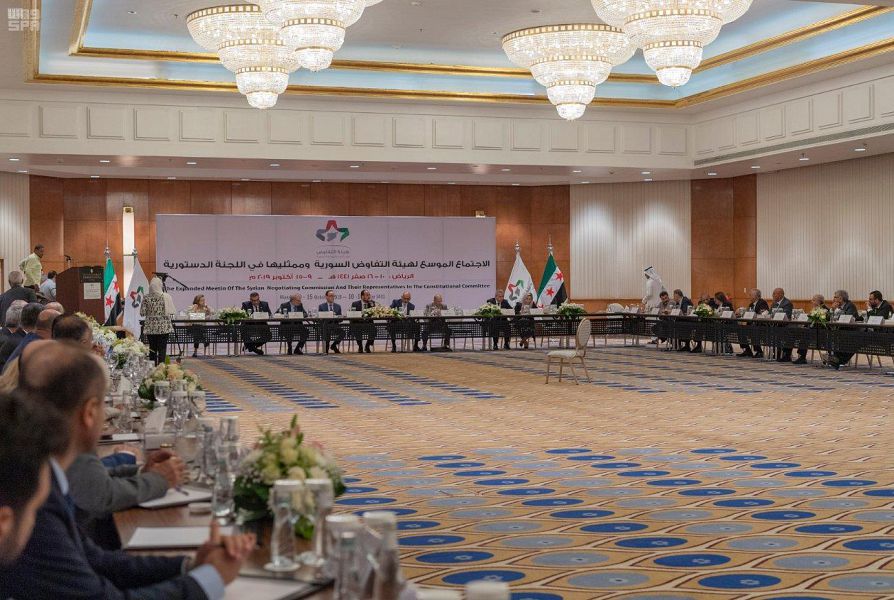
Opposition blames Assad regime for stalemate
JEDDAH: Two-day talks on Syria concluded on Friday in Astana, Kazakhstan, without notable progress on forming a constitutional committee to drive a political settlement in the war-torn country.
A joint statement by the three cosponsors — Iran, Russia and Turkey — said the meeting had broached the issue of the constitutional committee with the UN special envoy for Syria, Geir Pedersen. Further talks in Geneva would be needed, it added.
Syrian opposition spokesman Yahya Al-Aridi blamed the Assad regime for the stalemate in the talks, telling Arab News: “It doesn’t want a political solution.”
He said: “The regime in particular is obstructing the formation of the constitutional committee in accordance with UN resolution 2254. The regime gets support from Iran in creating hurdles.”
He added: “Russia seems to consider itself a substitute to the UN, when in fact the UN should be the one in charge and the facilitator of negotiations and implementing (resolution) 2254.”
Al-Aridi said the Astana process had a two-fold goal from the start. “The military aspect … was aborted into something called de-escalation zones, but the regime and its supporters turned them into escalation zones,” he added.
“The humanitarian aspect was to establish confidence-building measures, but the regime didn’t do that either.”
Al-Aridi said the issue of the release of prisoners from the regime’s jails was insisted upon in every Astana round, but the regime failed to act.
“Russia said it tried over 300 kinds of weapons on Syrian soil, which means it’s very much for military action, but in the media they portray themselves as favoring a political solution,” he added. “If there’s any terrorism that needs to be fought, it’s the state terrorism of the regime.”
He said “cunning” Iran, which has “a vicious plan for the region,” is out to destroy the Syrian social fabric with its militias.
Bahia Mardini, a human rights campaigner and founder of Syrian House, an organization dedicated to helping Syrians in the UK, told Arab News: “It’s clear that there’s disagreement between the guarantor countries (Iran, Russia and Turkey) over Syria, and that the Russian-American conflict over Syria is still there.”
She urged the international community “to find a real solution that will consolidate democracy and establish a future for Syria on the basis of international resolutions.”
She added: “We call for an end to the suffering of the Syrians … and their participation in building and redrawing the future through a political solution that will lead to the implementation of (resolution) 2254, all relevant international resolutions and the Geneva Declaration to restore the unity of Syrian soil and heal wounds.”












